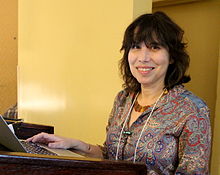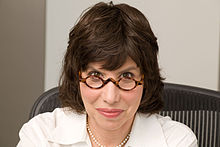Meet 10 women who have changed — and continue to change — one of the most important disciplines in our country.
These women helped bring education to historically disenfranchised groups by attaining powerful positions and pushing forward, often against resistance. We are inspired seeing how far these women have come and how much many of them continue to offer.
Some opened the door by becoming the first women to lead academic institutions, advise the President, or chair influential boards. Others are currently shaping how we will educate future generations. Whether by leading our nation’s most prestigious educational organizations or by shaping conversations about learning, they are unmistakably amazing women that you should know a little more about.
3 Women Who Were Trailblazers for Educational Progress in United States History
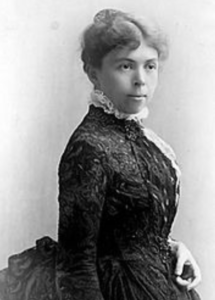
Alice Palmer
Discussions of American education would be incomplete without Alice Palmer.
Her career in education opened the gates to more opportunities for women to attend college. She co-founded and served as president of the American Association of University Women. She served as President of Wellesley College from 1881 to 1887. From 1892 to 1895 she served as Dean of Women at the University of Chicago. And she accomplished all of these things before women were legally allowed to vote!
Perhaps more important than her career was her contribution to discourse on women’s education. She argued that women ought to and should obtain college degrees so that if a woman was called upon to support herself, she would be able to do so. This modest position of self-reliance remains a rallying cry to American women today.
Alice Palmer was inducted into the Hall of Fame for Great Americans.
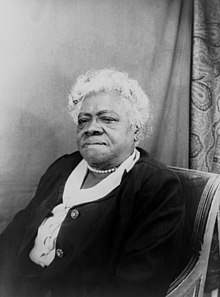
Mary McLeod Bethune
Mary McLeod Bethune was known as “The First Lady of The Struggle” because of her commitment to building better livelihoods for African Americans through education.
She started a private school for African American students in Daytona Beach, Florida, which later became Bethune-Cookman University. Graduates demonstrated for the entire country what African Americans could do in the classroom and with an education.
After her work on Franklin D. Roosevelt’s presidential campaign in 1932, she was appointed to Roosevelt’s Black Cabinet, the first of several political changes to come.
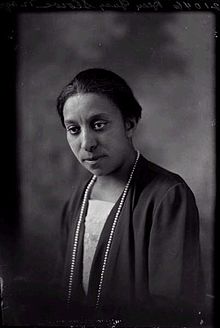 Lucy Diggs Slowe
Lucy Diggs Slowe
Lucy Diggs Slowe was a catalyst for change, influencing a large cross-section of American society with several trailblazing accomplishments. She was an educator and an athlete; winning the American Tennis Association’s first tournament in 1917, becoming the first African American woman to to win a major sports title. During this time, her career as an educator skyrocketed, and in 1919 she was asked to create the first black junior high school.
In 1922, she was selected as the first African-American woman to be named Dean of Women at Howard University.
She was also one of the original sixteen founders of Alpha Kappa Alpha Sorority, the first sorority founded by African-American women.
7 Women Who Are Reimagining Education Today
Elizabeth E. Bailey Ph.D.
Elizabeth Ellery Bailey is an economist and the John C. Hower Professor of Business and Public Policy at the Wharton School of the University of Pennsylvania. She is a true pioneer serving as the first woman in a number of leadership roles across political and academic institutions.
Between 1977 and 1983, she served on the Civil Aeronautics Board, where she oversaw the deregulation of the airline industry as the first female Civil Aeronautics Board Commissioner and then as the Board’s first female vice chairman.
Her contribution to education began in 1983, when she became Dean of the Graduate School of Industrial Administration of Carnegie Mellon University, the first woman to head a Top 10 graduate school. She continues to teach at Wharton today.
Susan Hockfield Ph.D.
Susan Hockfield is an American neuroscientist who served as the sixteenth president and first female president of the Massachusetts Institute of Technology. Her tenure has seen massive development of new programs, alliances, and attitudes of one of the country’s most respected academic institutions.
The first life scientist to lead MIT, Susan Hockfield embraced the convergence of life sciences with engineering and physical sciences; fields such as clean energy and cancer research, by founding MIT’s David H. Koch Institute for Integrative Cancer Research, the Institute for Medical Engineering and Science, and the Ragon Institute of MGH, MIT and Harvard.
Dr. Hockfield expanded MIT’s international education and research activities by developing technology and partnerships with other institutions. She launched MITx, and partnered with Harvard University to launch edX. These online learning platforms provide MIT and Harvard courses to a virtual community of learners across the globe.
Under Dr. Hockfield’s leadership, MIT also developed international partnerships to found the Singapore University of Technology and Design and the Masdar Institute of Science and Technology.
Her approach to education helped MIT broaden its impact on students and universities worldwide.
Clara Lovett Ph.D.
Clara M. Lovett is the former president of Northern Arizona University and current Chair of the Board of Directors for the Scottsdale Center for the Performing Arts.
Dr. Lovett appeared on the list of “100 Most Powerful Women” published by Washingtonian Magazine in 1989. In 1992, she received the “Virginia Educator of the Year” award. In 1993, she became president of Northern Arizona University (NAU) in Flagstaff and she eventually retired in 2001.
After leaving NAU, Lovett was president and Chief Executive Officer of the American Association for Higher Education until 2005. That year, she was recognized with the “Distinguished Contributions to Higher Education” award from the American College Personnel Association. In 2008, she received the Jeanne Lind Herberger Award from the Arizona Women’s Education & Employment association.
Refusing to rest on her laurels, Dr. Lovett continues to shape conversations of America. A 2018 article of hers, “Our Questionable Support of Diversity in Higher Ed,” points out that universities tout diversity more than they take action to become more diverse. Thirty years after joining the Top 100 Most Powerful Women, Dr. Lovett continues to catalyze change.
Ayesha Jalal Ph.D.
Dr. Jalal is the current Mary Richardson chair at Tufts University, where she has been a tenured professor since 1999.
One of the most prominent historians of South Asia, Dr. Jalal has helped bring the study of history back to Pakistan’s educational program.
Her lecture (see above) on the importance of history, shows why a nation should remember, and build from, the past.
Though Dr. Jalal’s work does not change how education is practiced, it does positively influence public policy and social standing of education as a whole, shaping the conversation about the importance of education in America.
Alison Gopnik
Dr. Alison Gopnik is a professor of psychology at the University of California at Berkeley. She is an internationally recognized leader in the study of children’s learning and development.
Dr. Gopnik was one of the creators of the academic field of study “theory of mind.” Theory of mind refers to the capability of understanding mental states, such as desires, emotions, beliefs both in oneself and in others. Adults use theory of mind to communicate every day, but children must develop theory of mind as they age. The discipline has shed light on many aspects of mental development.
Dr. Gopnik is also known for “theory theory” of children’s development. Theory theory explores how children develop theory of mind, positing that children build theories of other human beings in ways quite similar to the way scientists develop, experiment, and revise theories.
Her TED Talk (see above) on mental development summarizes how her work and that of others over the last few decades have changed how we think about children. Many people have long thought of babies inferior to adults in mental processing; however, now we understand that babies can think creatively and logically as they solve problems — mentalities that inspire even the most prolific adult minds.
Dorothy A Horrell Ph.D
Dorothy A. Horrell accepts chancellorship at UC Denver
“I believe that women are pre-dispositioned to think about the whole and how the parts come together. A home economics education prepares you to think about family, neighborhoods, communities, and organizations in terms of how they bring people together. I believe that if we can figure things out first in the context of a family, that can apply to organizations, neighborhoods, communities and the world.”
— Dorothy Horrell
Denver’s own Dorothy Horrell was inducted into the Colorado Women’s Hall of Fame in 2018. The current Chancellor of the University of Colorado at Denver (UCD), Chancellor Horrell serves on the Colorado Women’s Chamber of Commerce and was voted to its Top 25 Most Powerful Women in 2014.
Minds Matter Denver is a proud partner of UCD and has the most profound respect for Dr. Horrell, particularly for her creation of pathways for women to learn, influence, and lead the world.
Barbara R. Snyder
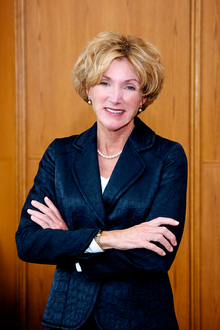
From Wikipedia
Barbara Snyder is President of Case Western Reserve University in Ohio and Chairwoman of the American Council on Education. Serving at Case Western since 2007, she has led the school to some extraordinary successes. She has doubled the number of applications to the freshman class while almost doubling fundraising contributions.
Mrs. Snyder and all the inspiring women who have led to real change in American education have accomplished two goals. They have shaped how we practice, prioritize, and understand education, but they have also changed how women lead and wield influence for the greater good. We owe them our utmost respect and gratitude.

